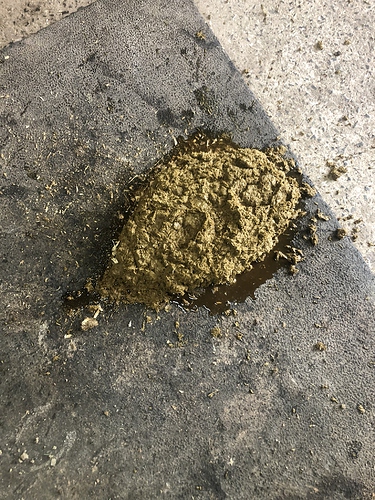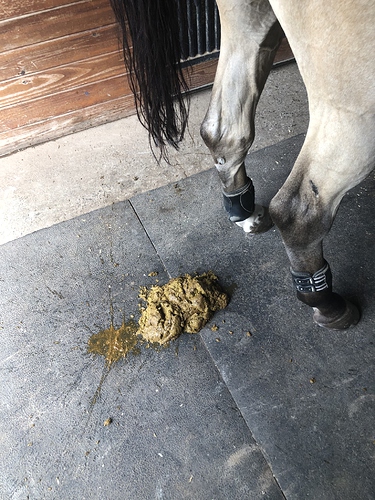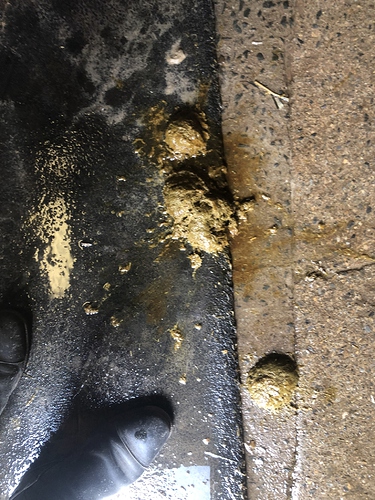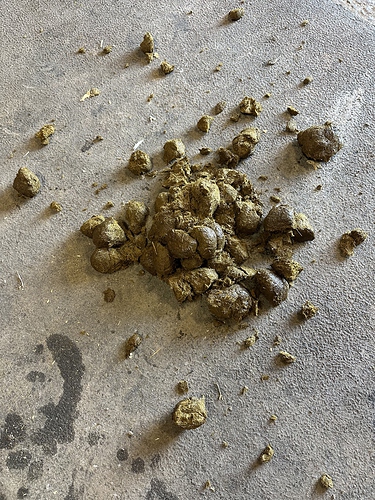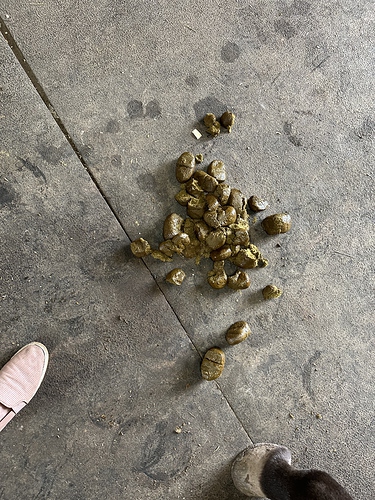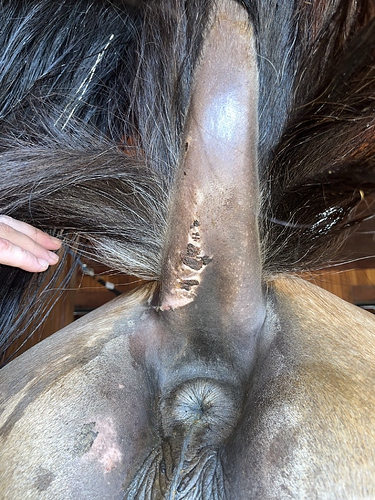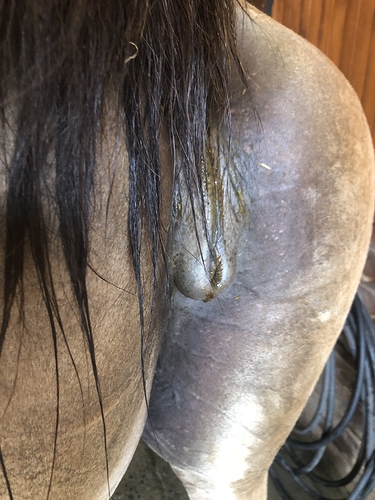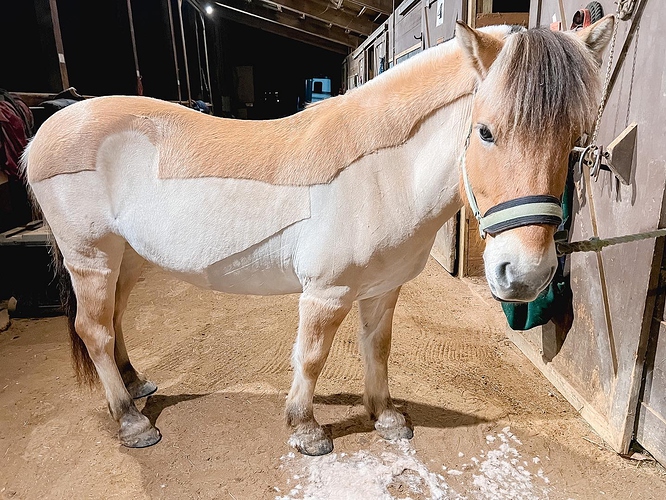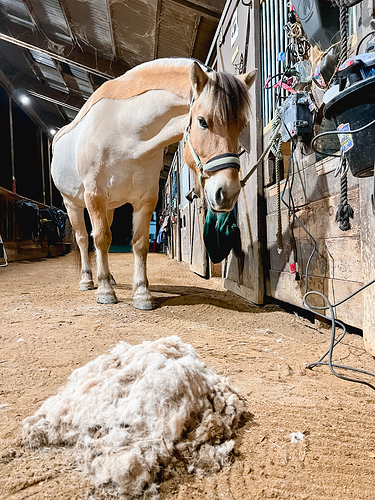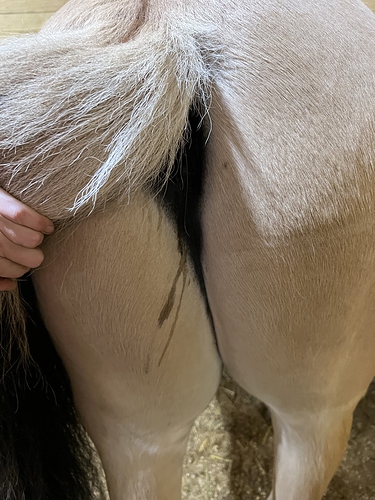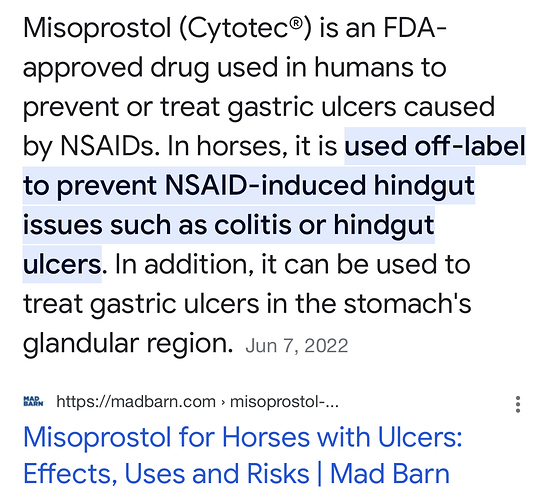I just wanted to check back in about my mare, in the event it might help someone…
My mare has had on and off cow patty poops since I had her (3 years this week!!) that were well controlled on GUT. Early summer, it stopped working and her diarrhea came back with a vengeance - this time with fairly copious fecal water. Whenever her poops were decently formed, which was somewhat rare and intermittent, they were accompanied by a sizable “gush”. The cow patties were also very sloppy.
After consulting with our internist, we were on day 2 or 3 of Sand Clear, with a plan to start Assure Guard Gold afterwards, when my mare came down with Potomac Fever. We took her off the Sand Clear and focused on that battle.
We recovered from that and were discussing resuming the Sand Clear/Assure Guard Gold plan when about 5 days later, she broke out with nose to tail hives. In addition to Dex, we started her on Zyrtec. Since she also has asthma, and it seemed to be helping with that, we kept her on it past the initial week. Lo and behold, her poops almost immediately firmed up and the fecal water went away.
A month or so later, I ran out of Zyrtec and wasn’t able to get a refill to the barn for a few days, and the fecal water and sloppy poops returned. Put her back on the Zyrtec, and they firmed up and the fecal water went away.
Last week, we ran out (again!) and it was four days before I could get more. By day 2 or 3, her poops were a mess, with tons of fecal water. I put her back on Zyrtec on Wednesday afternoon, and by Saturday, her poops were perfect, and have remained so. No fecal water, no cow patties - even when she poops in the crossties pre-ride, the ring during, and the crossties after. Nothing but perfect firm apples and no water. (This was unheard of before…)
At this point, I have a text out to my internist about allergy testing because I think that the clinical improvement indicates that may be behind the fecal water.
It’s also a cost effective remedy if it works for you… If you purchase Zyrtec at Costco or on Amazon (generic), it is super cheap compared to supplements.
These are my clinical observations only, but I am convinced at this point that there is a correlation. A correlation we discovered by accident… May be worth discussing with your vet!
ETA: I can include “before” and “after” photos, but not sure if y’all would want to see them! Lol.

 ). Hay is provided abundantly in nets all winter, with all 3 having the same access to the same hay. Being Morgans, of course they can’t all have real nice, fine orchard grass. So I will have to come up with a solution to leave this mare in her own sectioned-off turnout/shed area with better hay for periods of time. I am hoping we’re not there yet, but we may be.
). Hay is provided abundantly in nets all winter, with all 3 having the same access to the same hay. Being Morgans, of course they can’t all have real nice, fine orchard grass. So I will have to come up with a solution to leave this mare in her own sectioned-off turnout/shed area with better hay for periods of time. I am hoping we’re not there yet, but we may be.
